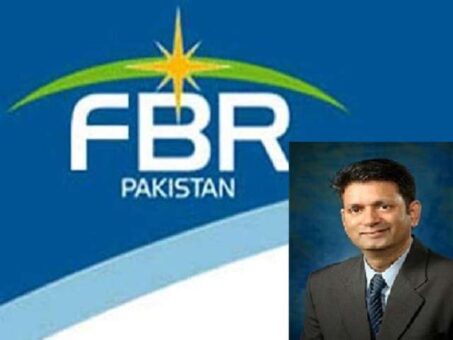Dr. Muhammad Ashfaq Ahmed, the Chairman of the Federal Board of Revenue (FBR), has drawn attention to the United Arab Emirates (UAE) as a preferred destination for parking offshore undisclosed funds by Pakistan nationals.
His observations were outlined in a research paper titled “Economy under Elites regarding Tax Amnesty Schemes, 2018,” published before he assumed the role of FBR Chairman in August 2021.
According to the paper, the UAE emerged as the top destination for offshore funds, totaling Rs346.2 billion. Switzerland followed at Rs114.8 billion, the UK at Rs89.7 billion, Singapore at Rs87.3 billion, British Virgin Islands at Rs48.9 billion, Canada at Rs25.8 billion, the US at Rs23.3 billion, Jersey at Rs14 billion, and Panama at Rs9.5 billion. Dr. Ashfaq highlighted that, apart from the UK, Singapore, and Jersey, Pakistan faces legal or administrative hurdles in effective exchange of information with other jurisdictions in the top 10.
Discussing the outcome of the Foreign Amnesty Scheme, 2018, Dr. Ashfaq expressed disappointment, noting that the scheme failed to produce the desired results despite projections that repatriated funds could exceed $4 billion. The data presented in the paper revealed that the total liquid assets not repatriated amounted to Rs727.85 billion, immovable assets to Rs322.56 billion, liquid assets invested in government securities to Rs3.34 billion, and repatriated liquid assets to Rs6.42 billion. The total tax collection in US dollars reached 285 million.
Dr. Ashfaq criticized the amnesty scheme for offering negligible tax rates, no penalties, default surcharges, or prosecutions. The incentives, including absolute confidentiality and the ability to declare cash without disclosing particulars, failed to attract foreign asset holders to avail of the scheme in significant numbers.
He emphasized that about 95 percent of amnesty declarants were pre-existing taxpayers, highlighting the need to focus on under-filers for potential revenue growth. Dr. Ashfaq suggested that substantial investments in the system and policy fine-tuning were necessary.
The paper underscored the challenges posed by offshore evasion, especially in the export and import sectors, where individuals potentially engaged in under-invoicing exports or over-invoicing imports. The introduction of regulatory changes to address these issues was deemed insufficient by Dr. Ashfaq, who called for a more robust approach to tackle elite capture and offshore evasion.
In conclusion, Dr. Ashfaq characterized tax amnestization as fitting within a theoretical framework of an elitist state that favors pleasure principles over reality principles. He pointed to the consequences of this choice, including regulatory deficits, abnormal enrichment of individuals and entrepreneurs, and a financially strained and embittered state.
The research paper provides valuable insights into the challenges of tax amnesty schemes and the complexities associated with tackling offshore tax evasion, underscoring the need for comprehensive policy measures to address these issues effectively.
